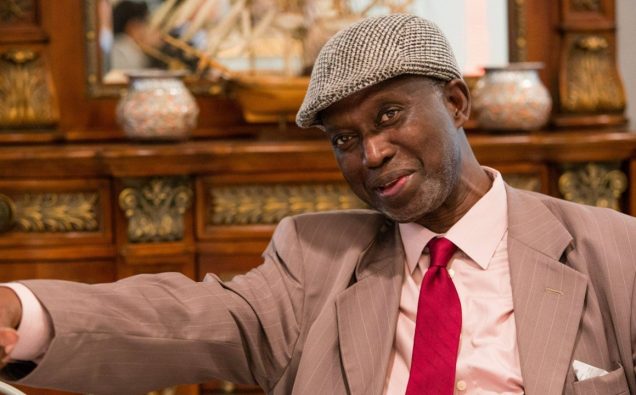
Image Credit: Dr. Sultan Chaudhry/www.sultandds.com
When attorney-at-law and author Mowahid Hussain Shah invited me to attend his talk at Howard University a few years ago, I was excited to be part of the colloquium that would bring views from researchers of diverse backgrounds to one platform.
I was also thrilled at the opportunity to meet our acclaimed host, Professor Dr. Sulayman Nyang, Chair of Howard’s African Studies Department. He warmly welcomed us to the campus with his customary smile – full of life and sincerity.
And true to its promise, Mowahid’s talk turned out to be an intellectual tour de force exploring ongoing challenges and opportunities facing the Muslim world from Africa to the Middle East and South Asia.
I came with some memorable takeaways from the discussion. For instance, Mowahid explained how leaving the longstanding disputes – Kashmir and Palestine – unattended had shaped perceptions of an unjust international system and spawned militancy.
The graduate students expressed a keen interest in issues and posed searching questions to the speaker. That was the time of the height of the Afghan war, when President Barack Obama and his administration would constantly berate Pakistan for troubles that partly arose from their own misplaced policies and preference for use of force to fix Afghanistan’s internal problems. Mowahid also highlighted the contributions of civil rights pioneer, Malcolm X, and the conscientious stance of Muhammad Ali, which he posited was not adequately appreciated by the African American community.
Out of their observations, the discerning students expressed disagreement with the common refrain that Pakistan was to blame for all that ailed Afghanistan and also described that the outside world viewed Pakistan in a vastly different light.
Not that I was unaware of these discussions and perceptions. But it was refreshing for me to see how the young people applied their own minds to have an unbiased prognosis of the conflicts in Afghanistan and the Middle East.
The most inspiring aspect of the talk was the way Dr. Nyang conducted the discussion. A picture of humility, despite having served in some of the elitist positions in his career, the academic facilitated the discussion in a way that empowered students.
He would simply ignite the urge in students and let them think and frame questions with their own understanding.
That moment reminded me of our academic Professor Samuel Lal Din, who, in his Drama Class for Masters’ in English Literature at Murray College, Sialkot, Pakistan would always ask students about when, why, how, where, and who in the situational parts of the plays. The questions made students think creatively and therefore be active participants in interpretation of Shakespearean plays.
At Howard that day, I felt how important it was for academics to help students to be curious in their area of study.
For Howard as indeed for academic circles elsewhere, Prof Nyang‘s passing away last month came as a huge loss. Scholars and higher education faculty know how valuable is the insight of an intellectual who has enriched himself with lifelong learning but also experienced real life through professional career that involved engagement with officials and common people.
Just look a the wide array of his accomplishments: Nyang served as a a former Deputy Ambassador and Head of Chancery at The Gambian Embassy in Jeddah, Saudia Arabia, during President Jawara’s rule; wrote several books, contributed to the Voice Of America Radio’s Africa Service Night-line Africa show; worked as consultant to several national and international agencies and on the boards of the African Studies Association, the American Council for the Study of Islamic Societies, America’s Islamic Heritage Museum, and the Association of Muslim Social Scientists.
According to his Howard biography, Prof Nyang was an advising scholar for the award-winning, PBS-broadcast documentaries Muhammad: Legacy of a Prophet (2002) and Prince Among Slaves (2007), produced by Unity Productions Foundation.
“He was a noble spirit, a truthful man, who devoted his life to sharing his learning and also asking others to be part of the honest discourse that is often found missing in the mainstream media and circles,” said Mowahid Shah, author of the book “Will and Skill” and amongst the first few Muslim attorneys admitted to practice before the U.S. Supreme Court. Mowahid recalled how Dr. Nyang nominated him to speak at the first global conference on 9/11 convened at Nicosia, Cyprus, during March 2002. He said that Dr. Nyang exuded wisdom and foresight and followed the path of his grandfather in Gambia who was a griot (respected sage and keeper of oral traditions.)
Another great quality that Dr. Nyang countenanced was a deep sense of contentment like a proverbial fruit-laden tree.
“While he could have led practically any African history department at any institution after his term as a diplomat from Gambia, he chose to begin teaching at Howard University in the 80’s,” Dr. Sultan Chaudhry, President McLean Islamic Center wrote after hearing about the professor’s demise.
In Professor Nyang’s death, American Muslims and academia have lost an authentic voice. But he leaves behind some vital lessons for all of us. Humility, decency, commitment and helping a creative understanding of history and contemporary events are hallmarks of an honest intellectual.













